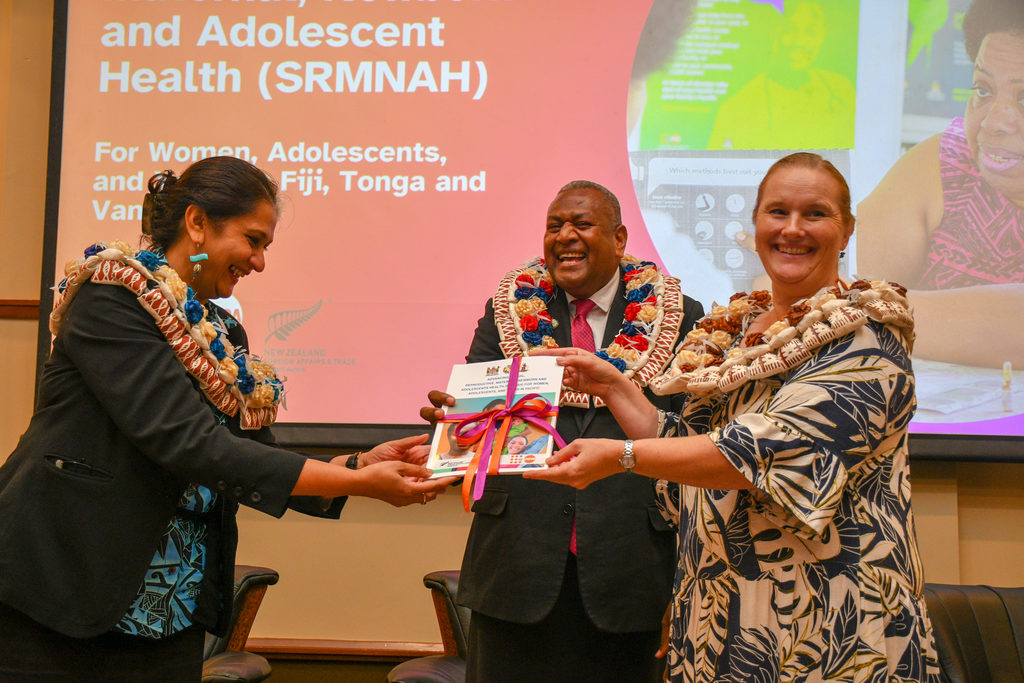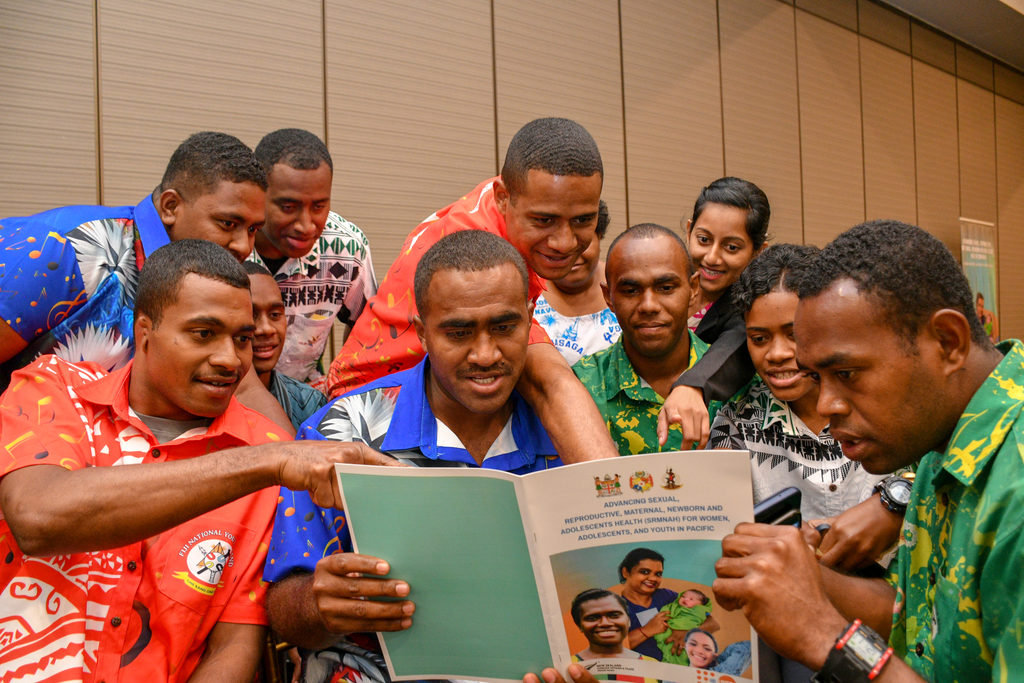A NEW regional initiative launched in Suva recently is shining a light on one of the Pacific’s most pressing and preventable challenges — maternal mortality.
The United Nations Population Fund (UNFPA) Pacific, in partnership with the Government of New Zealand, has unveiled a three-year project (2025–2027) to strengthen sexual, reproductive, maternal, newborn and adolescent health across Fiji, Tonga, and Vanuatu.
The aim and objective is clear cut, to save women’s lives and work towards building a healthier, more resilient Pacific region.
This initiative comes at a critical time because despite decades of progress, the maternal mortality ratio (MMR), the number of women who die from pregnancy or childbirth-related causes per 100,000 live births, remains alarmingly high in the Pacific.
In Fiji, the MMR currently stands at around 48.1 deaths per 100,000 live births. Tonga has seen a sharp rise, from 44 in 2020 to 183 in 2023, while Vanuatu peaked at about 123 in 2017.
Though these numbers are below some global averages, they remain far from the Sustainable Development Goal (SDG) target of fewer than 70 maternal deaths per 100,000 live births.
At the launch at Suva’s GPH, which was attended by representatives from across government and multilateral agencies, UNFPA Pacific Director and Representative Bidisha Pillai emphasised that maternal health cannot be addressed in isolation.
“The unacceptably high rates of gender-based violence, the alarming HIV outbreak, and the need to end preventable maternal deaths are deeply interconnected,” she said.
Fiji’s own context illustrates this reality.
The country declared an HIV outbreak in 2024, with infections rising rapidly, largely among young people.
At the same time, more than two in three Fijian women have experienced physical or sexual violence by an intimate partner.
“This comprehensive initiative, made possible by New Zealand’s commitment, will deliver integrated solutions,” Ms Pillai added.
“It’s about upholding the fundamental rights and dignity of every woman, girl, and young person in the Pacific.”
Shared commitment
New Zealand’s High Commissioner to Fiji, Charlotte Darlow, reaffirmed her government’s support for the programme, describing it as an investment in the Pacific’s future.
“Strengthening maternal and reproductive health systems is key to building resilient communities by investing in women and young people, their health, their rights, and their futures,” she said.
The project will strengthen antenatal and postnatal care, improve birth preparedness, and ensure skilled personnel are available at every delivery, particularly in remote and rural areas.
It will also enhance services to prevent and respond to gender-based violence and expand HIV testing and treatment.
Fiji’s Assistant Minister for Health and Medical Services, Penioni Ravunawa, called the initiative “timely”, especially as the country grapples with its current HIV outbreak.
“It aligns with our commitment to improving maternal, newborn and adolescent health outcomes,” he said.
“By working with UNFPA and New Zealand, we are expanding the reach of quality health services and supporting families and communities to thrive.”
The broader picture
Globally, maternal mortality is a key indicator of a nation’s health and equality.
According to the UN, developed nations such as Norway and Poland have MMRs as low as two per 100,000 live births.
Australia’s rate sits around 5.3.
By comparison, Papua New Guinea, one of the region’s wealthiest nations, recorded an MMR of 189 in 2023, more than double the UN’s target.
In Fiji, data has fluctuated from 86 maternal deaths per 100,000 live births in 2019 to 48.1 in 2021.
While the trend is improving, experts stress that even one preventable death is one too many.
Investing in health, investing in the future
At the heart of the problem is an issue of investment.
Wealthier nations dedicate substantial portions of their budgets to healthcare, Norway for example spends about 8 per cent of its GDP, while Australia allocates roughly 10 per cent, or around $270 billion annually.
In contrast, Fiji’s health sector accounts for about 3.4 per cent of GDP.
Health spending per person has even declined slightly, from $217.15 in 2022 to $212.89 in 2023–2024, which is still relatively low by international standards.
Experts argue that improving maternal health outcomes in the Pacific requires not only targeted projects but also a realignment of national priorities.
That means better-equipped and adequately staffed hospitals, fair pay for healthcare professionals, and infrastructure that connects even the most remote communities to essential services.
A healthier population, they say, is the foundation of sustainable economic growth.
A nation’s greatest asset is its people, therefore massive investment in quality healthcare is the only way to ensure a productive population and thriving economy.
To illustrate, there was a movie that came out in 2013 which starred Matt Damon, titled Elysium. In a nutshell, the movie was based on a dystopian version of Earth, where it had become overpopulated and polluted.
Much of the planet’s richer inhabitants retreated to a space station (Elysium) orbiting above Earth where they built a utopian paradise to sustain their privileged way of life.
As health systems on Earth were pushed to the brink, those on Elysium possessed the the key right in their very homes, a medbay, a machine similar to a CT scanner, which could detect and cure any ailment.
The underlying message of Elysium is of course how health and the right to life became a privilege made available only to the rich and powerful.
With this new initiative taking shape, a sobering fact hits home, which is that behind every statistic is a life, a mother, a family, and a community whose future hangs in the balance of whether or not we start prioritising health as a human right and not a privilege.
Director and representative UNFPA Bidisha Pillai with New Zealand High Commissioner Charlotte Darlow hand over the project document to Assistant Minister for Health Penioni Ravunawa.
PIcture: LITIA RITOVA



